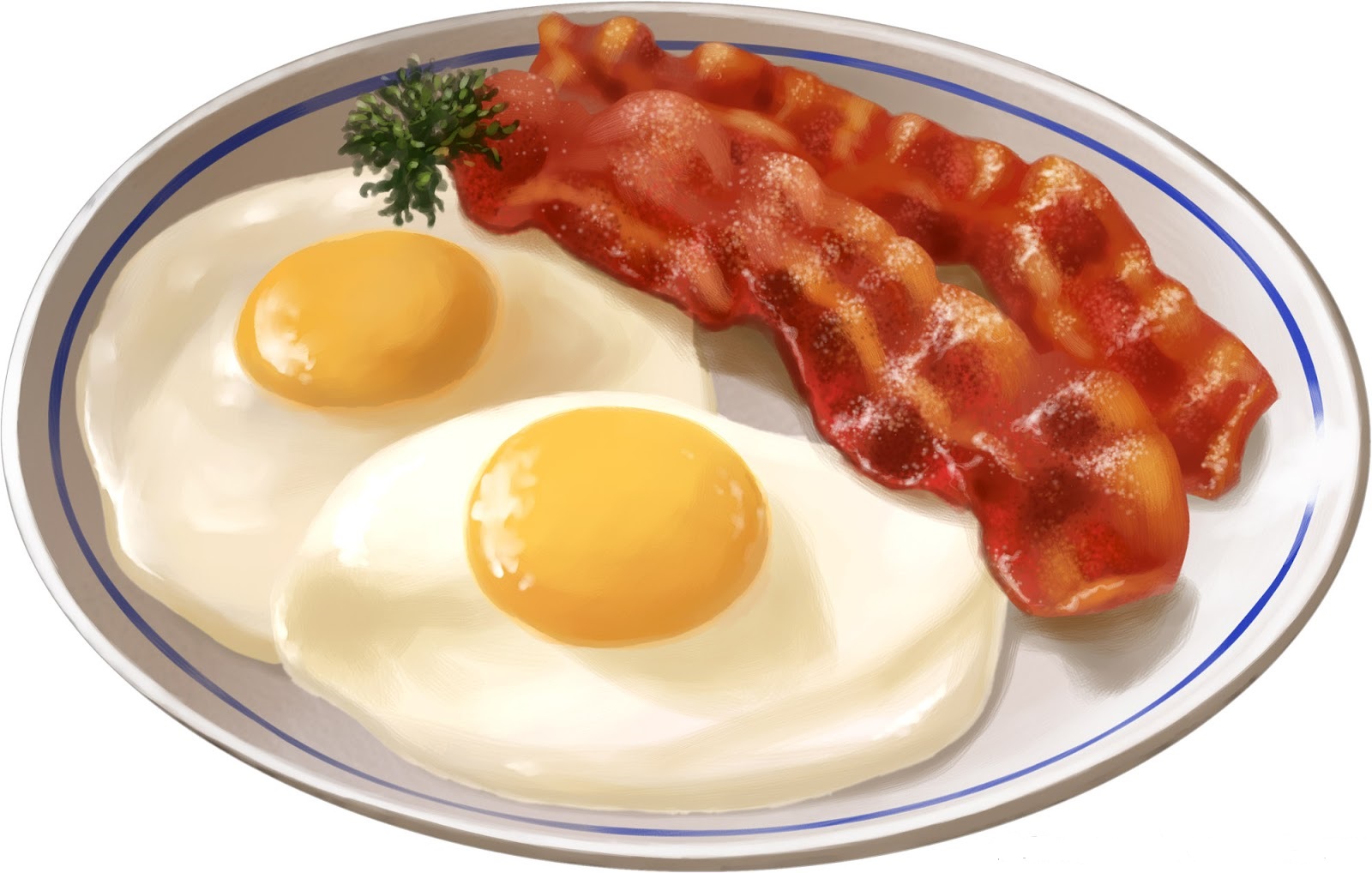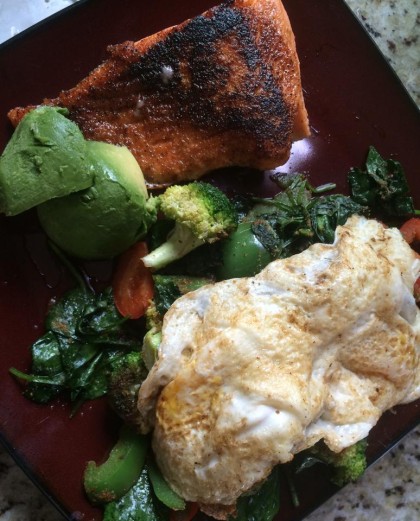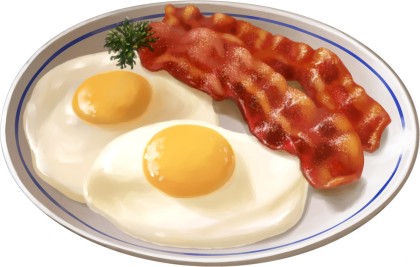High Fat, Low Carbohydrate Breakfast

I’ve been experimenting with a new breakfast regimen as of late. It’s centered around a high fat, low carbohydrate meal. At its roots this meal is made up of protein, fats and fiber. Right now I’m eating around 2,000-2300 calories a day, slowly increasing my calories, and typically break that down into 4-5 meals a day. Meal 1 is usually around 400-500 calories and my meals have been consisting of a variety of higher fat food pairings like Hemplers uncured bacon, whole eggs, sauteed peppers and spinach cooked with coconut butter or walnut oil, lean ground beef or turkey (at least 90/10) and almonds or walnuts. I make sure to add a vegetable in as a fiber source as well, as the micro-nutrient benefits. Although dietary fiber is a derivative of carbohydrates, it does not have an impact on raising blood sugar and helps aid in digestion so its always important to get your vegetables whenever possible.

The idea is that if we provide our body with fats and minimal carbohydrates after a prolonged period of fasting (right after a nights sleep), our bodies can then oxidize fatty acids or glucose as energy. On the other hand if we break our fast with a high carbohydrate meal our body then looks for energy in the form of glucose throughout the rest of the day, inhibiting optimal fat loss. Hunger, cravings and yo-yos in energy tend to follow high carbohydrate meals in some individuals, like myself.
Utilizing a high fat, low carbohydrate breakfast seems to be especially useful to those with some degree of insulin resistance – or simply put, those that have a low carbohydrate tolerance. Utilizing a low carb breakfast can help stabilize blood glucose levels helping us use more stored body fat as fuel throughout our day – then utilizing our carbohydrates around intense workouts, where we need a fast energy source and replenishment of muscle glycogen.
Anecdotally, I’ve noticed a decrease in hunger throughout the day which makes its easier sticking to my caloric goals. I also experienced more consistent energy levels, especially entering my workouts where fighting fatigue and lethargy from consuming carbohydrates can be a pain.
I want to make it clear I am not saying this is a magic solution to burning body fat! This is just something I’ve been trying out and enjoying the benefits of. Consider this a tool in your tool box to try out. I think a lot of you may benefit from this in a similar way though, just know that it must be practiced in the correct context of your goals. I’ve found that consuming this breakfast helps me stay on track with my outlined diet, its not an excuse to overeat later in the day. If you want to lose body fat you need to be aware of your overall daily caloric needs first, then implement some nutrient timing concepts like this second. A successful nutrition plan is about finding the best tools to use to stay on track. Everyone has individual needs and experimenting a bit is absolutely necessary if you want to reach top shape. Consistency is king to reach your goals so if you find yourself struggling with fat loss or being excessively hungry consider holding off on the carbohydrates at breakfast and replace them with some dietary fat!
To your success,
John Reed
